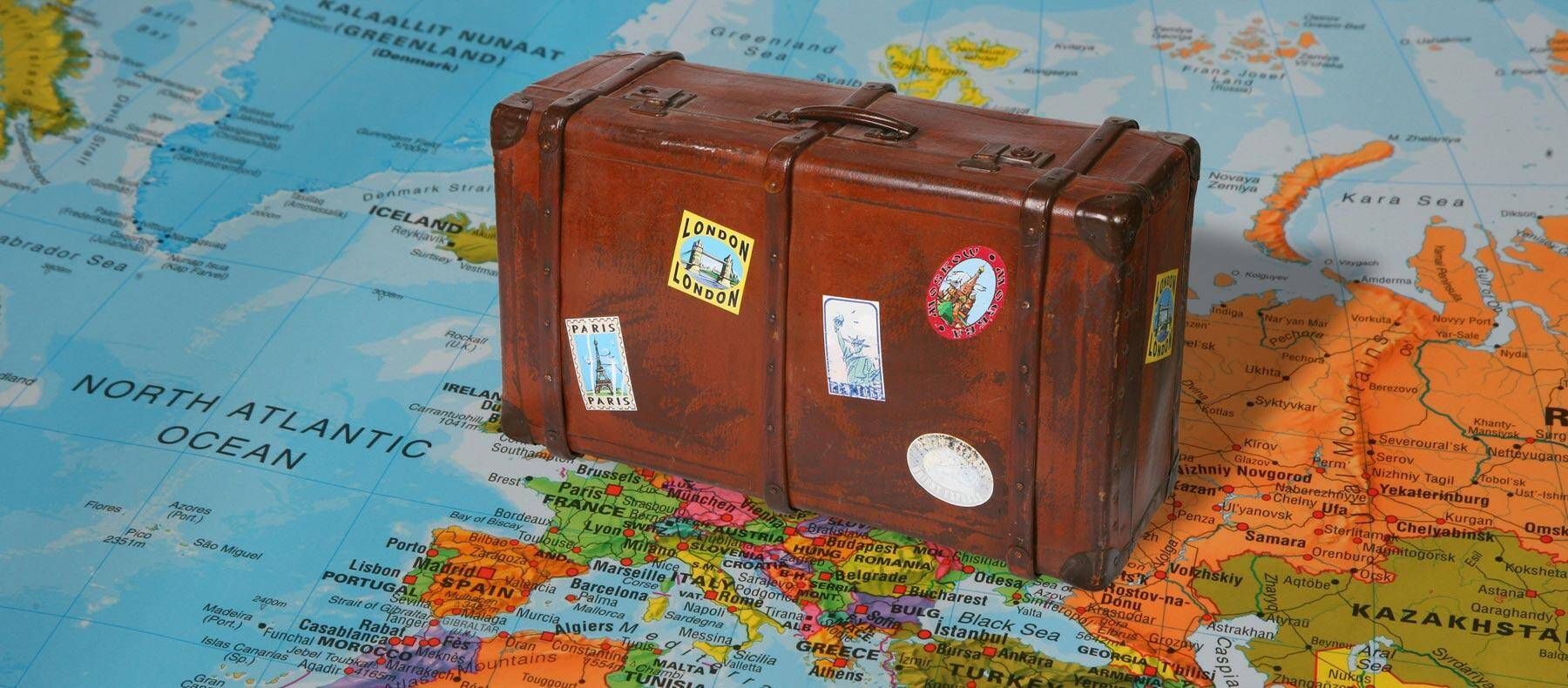- Home
- Travel news
- MICE business
- Country news
- Abu Dhabi
- Argentina
- Armenia
- Austria
- Azerbaijan
- Australia
- Bali
- Baltic
- Belgium
- Bolivia
- Botswana
- Brazil
- Budapest
- Cambodia
- Canada
- China
- Chile
- Colombia
- Costa Rica
- Croatia
- Cyprus
- Czech Republic
- Dubai
- Ecuador
- Egypt
- Finland
- France
- Germany
- Greece
- Hong Kong
- Iceland travel news
- India
- Ireland
- Israel
- Italy
- Japan
- Jordan
- Kazakhstan
- Kenya
- Lebanon
- Malaysia
- Malta
- Mauritius
- Mexico
- Montenegro
- Morocco
- Namibia
- Netherlands
- New Zealand
- Oman
- Panama
- Peru
- Poland
- Portugal
- Russia
- Qatar
- Saudi Arabia
- Scandinavia
- Scotland
- Senegal
- Serbia
- Singapore
- Slovenia
- South Africa
- Travel news South Korea
- Spain
- Switzerland
- Travel news Tanzania and Zanzibar
- Thailand
- Tunisia
- Turkey
- Ukraine
- United Kingdom
- USA
- Uzbekistan
- Vietnam
- West Africa
- Zambia and Zimbabwe
- Useful links
- Sports events calendar
- Contact/contribute

Latest Travel advice UAE
- Exciting News Daily Flights London to Abu Dhabi 2025
- Iberia Airlines Debuts New Route to Tirana Albania 2024
- AC Milan and Emirates Unveil Exclusive Art Installation at Dubai World Cup 2024
- Brussels Airport Unveils 8 New Destinations and Welcomes 6 Additional Airlines for a Total of 178 Destinations
- Longest One Stop South America Flight 2024

August 3, 2021: Information on entry restrictions, testing and quarantine regulations in the UAE
Check if you need a visa. Depending on your nationality you can get a visa on arrival, or you can apply for your prearranged visit visa from Dubai Immigration before you travel.
There may be specific departure requirements in your country before you leave. Check the information on our Travel Requirements page.
Requirements for all passengers arriving in Dubai
All passengers travelling to Dubai from any point of origin (GCC countries included) must hold a negative COVID‑19 PCR test certificate for a test taken no more than 72 hours before departure, except for travel from Afghanistan, Bangladesh, Indonesia, India, Pakistan and Sri Lanka (for which specific requirements are stated above). Please see the requirements for travel from India below.
The certificate must be a Polymerase Chain Reaction (PCR) test. Other test certificates including antibody tests, Rapid PCR tests and home testing kits are not accepted in Dubai. Travellers must bring an official, digital or printed certificate in English or Arabic to check in – SMS certificates are not accepted. PCR certificates in other languages are acceptable if they can be validated at the originating station. Digital COVID‑19 certificates are accepted upon arrival at Dubai International airport verification points.
COVID‑19 PCR test certificates must be issued by an authorised facility in the passenger’s departure country. Certificates that have already been presented for travel to another destination can’t be used for re‑entry even if they are still within the validity period.
For passengers arriving from the following countries, it is mandatory that the COVID‑19 PCR report includes a QR code linked to the original report for verification purposes. The QR code must be presented at check‑in and to representatives of the Dubai Health Authority (DHA) upon arrival in Dubai airports: Bangladesh, India, Islamic Republic of Pakistan, Sudan, Sri Lanka, Lebanon, and effective 9 May, Egypt and Ethiopia.
Test on arrival
Passengers arriving in Dubai from the following countries will be required to take another COVID‑19 PCR test on arrival at Dubai International airport:
Afghanistan, Angola, Argentina, Bahrain, Bangladesh, Bosnia & Herzegovina, Brazil, Cambodia, Chile, Croatia, Cyprus, Djibouti, Egypt, Eritrea, Ethiopia, Georgia, Ghana, Guinea, Hungary, India, Indonesia, Iran, Iraq, Israel, Ivory Coast, Jordan, Kenya, Kuwait, Kyrgyzstan, Lebanon, Malta, Moldova, Montenegro, Morocco, Myanmar, Nepal, Oman, Pakistan, Poland, Philippines, Qatar, Rwanda, Russia, Senegal, Slovakia, Somaliland, Somalia, South Sudan, Sudan, Syria, Tajikistan, Tanzania, Tunisia, Turkey, Turkmenistan, Ukraine, Uzbekistan, Zimbabwe.
Transiting in Dubai
All passengers who have started their journey in Afghanistan or Indonesia and are transiting through Dubai must have a negative COVID‑19 Polymerase Chain Reaction (PCR) test certificate for a test taken no more than 48 hours before departure. The test certificate must include a QR code.
Passengers transiting through Dubai from the following countries are required to present a negative COVID‑19 PCR test certificate for a test taken no more than 72 hours before departure, as well as to follow any requirements mandated by their final destination.
Angola, Argentina, Bahrain, Bosnia & Herzegovina, Brazil, Cambodia, Chile, Croatia, Cyprus, Djibouti, Egypt, Eritrea, Ethiopia, Georgia, Ghana, Guinea, Hungary, Iran, Iraq, Israel, Ivory Coast, Jordan, Kenya, Kuwait, Kyrgyzstan, Lebanon, Malta, Moldova, Montenegro, Morocco, Myanmar, Nepal, Oman, Poland, Philippines, Qatar, Rwanda, Russia, Senegal, Slovakia, Somaliland, Somalia, South Sudan, Sudan, Syria, Tajikistan, Tanzania, Tunisia, Turkey, Turkmenistan, Ukraine, Uzbekistan, Zimbabwe.
The certificate must be a Polymerase Chain Reaction (PCR) test. Other test certificates including antibody tests and home testing kits are not accepted in Dubai. Travellers must bring an official, digital or printed certificate in English or Arabic to check in – SMS certificates are not accepted. PCR certificates in other languages as required by the final destination are acceptable if they can be validated at the originating station.
Passengers from all other countries do not need a COVID‑19 PCR test to transit in Dubai, unless it’s required by their final destination.
Test exemptions:
- UAE nationals are exempt from taking a COVID‑19 PCR test before departing for Dubai. They must be tested on arrival in Dubai, irrespective if they are holding a valid negative COVID‑19 PCR certificate from the point of origin.
- Children under the age of 12 and passengers who have a moderate or severe disability are exempt from taking a COVID‑19 PCR test.
- Moderate or severe disability includes neurological disorders and intellectual or developmental disabilities. For example: Acute spinal cord injury, Alzheimer’s disease, Amyotrophic lateral sclerosis (ALS), Ataxia, Autism spectrum, Bell’s palsy, Brain tumours, Cerebral aneurysm, Cerebral palsy, Down Syndrome, Epilepsy and seizures
- All other passengers, including those who are visually impaired, hearing impaired or physically challenged must hold a negative COVID‑19 PCR test certificate as per the requirements.
- There may be specific test exemptions in your country of origin and final destination. Please check the requirements before you travel.
COVID‑19 testing laboratories:
- The UAE government has specified designated laboratories. You can either use the recommended laboratories in the list or any trusted and certified laboratories in your country of origin to get your COVID‑19 PCR test.
- If you are flying from India, Pakistan, Nigeria or Bangladesh , you must get your certificate from one of the labs listed in the designated laboratories document to be accepted on the flight.
When you arrive
- You may need to take another COVID‑19 PCR test on arrival. If you take a test at the airport, you must remain in your hotel or residence until you receive the test result.
- If the test result is positive, you will be required to undergo isolation and follow the Dubai Health Authority guidelines.
- You must also download the COVID19 – DXB Smart App iOS‑Android
Rules for travel from Afghanistan and Indonesia
Passengers who have been in or transited through Afghanistan and Indonesia in the last 14 days before travelling to Dubai will not be allowed entry. This does not apply to passengers connecting through Dubai, provided they do not leave the transfer area.
Only the following categories of passengers will be accepted for travel to Dubai from Afghanistan and Indonesia:
- UAE nationals and their first degree relatives
- Members of diplomatic missions
- Holders of UAE Golden and Silver Visas
- Officials and passengers exempted and/or granted permission to enter the UAE by the appropriate authorities
Exempted passengers must have a COVID‑19 PCR test conducted within 48 hours of the date of departure. Effective 18 July 2021, passengers from Indonesia must perform a COVID‑19 Rapid Antigen test at the airport prior to departure.
The test certificate must be issued by an accredited laboratory and must contain a QR code. Additionally, passengers will be required to undergo COVID‑19 PCR testing on arrival in Dubai as well as self‑quarantine for a period of 10 days from the date of arrival.
Rules for travel from Bangladesh, India, Pakistan and Sri Lanka
Only the following categories of passengers will be allowed entry to Dubai:
- Members of diplomatic missions
- Holders of UAE golden visa
- Holders of UAE visa having EXPO 2020 as sponsor
- UAE nationals
- Passengers exempted and/or granted permission to enter the UAE by the appropriate authorities
- Passengers travelling on a charter flight who have a valid COVID‑19 PCR test certificate
Passengers exempted from the travel restriction must comply with the following:
- Passengers must have a valid COVID‑19 test certificate issued within 48 hours of the time of sample collection and scheduled flight departure.
- Only COVID‑19 PCR test reports from certified labs that issue a QR code linked to the original report will be accepted.
- For passengers travelling from India only, passengers must take a COVID‑19 Rapid Antigen or Rapid PCR test at the airport prior to departure.
- Passengers must undergo COVID‑19 PCR testing on arrival in Dubai, followed by two other PCR tests on the 4th day and 8th day of their quarantine period.
- Passengers must sign an indemnity document for a 10‑day home or hotel quarantine, starting from the day of arrival.
- Passengers must download the DXB COVID‑19 app upon arrival at Dubai airports and provide all the required information.
All passengers who have travelled from or transited through India, Bangladesh, Pakistan and Sri Lanka in the last 14 days will not be accepted for travel to or transfer through Dubai from any other point except for returning UAE nationals.
Rules for travel from South Africa and Nigeria
You will not be able to enter or transit in Dubai if you have been in or transited through South Africa or Nigeria in the last 14 days before travelling to Dubai. This is not applicable for UAE nationals who are returning to the UAE and members of diplomatic missions. Members of diplomatic missions travelling from Nigeria must present a negative COVID‑19 PCR test certificate from one of the authorised laboratories in Nigeria.
Rules for travel from Democratic Republic of Congo, Liberia, Namibia, Sierra Leone, Uganda, Vietnam, Zambia
Emirates has suspended the carriage of passengers from the following countries. Passengers who have been in Democratic Republic of Congo, Liberia, Namibia, Sierra Leone, Uganda, Vietnam, Zambia in the past 14 days are not allowed to enter or transit in Dubai until further notice.
- Democratic Republic of Congo to Dubai effective 11 June 2021
- Liberia, Namibia and Sierra Leone to Dubai effective 21 June 2021
- Uganda to Dubai effective 12 June 2021
- Vietnam (Hanoi and Ho Chi Minh City) to Dubai, effective 23:59hrs on 5 June 2021 (local time Dubai)
- Zambia to Dubai effective 11 June 2021
Only the following categories of passengers will be accepted for travel to Dubai:
- UAE nationals and their first‑degree relatives arriving from Democratic Republic of Congo, Liberia, Namibia, Sierra Leone, Uganda (Entebbe – EBB), Vietnam, Zambia (Lusaka – LUN)
- Members of diplomatic missions from above countries
- Holders of UAE Golden and Silver Visas
- Officials and passengers exempted and/or granted permission to enter the UAE by the appropriate authorities
Exempted passengers must have a COVID‑19 PCR test conducted with 48 hours from the date of departure. The test certificate must be issued by an accredited laboratory and must contain a QR code. Additionally, passengers will be required to undergo COVID‑19 PCR testing on arrival in Dubai.
Travelling from Dubai to Abu Dhabi
There are strict rules for travelling into Abu Dhabi by road. Those intending to enter Abu Dhabi must have a negative COVID‑19 PCR test result issued within 48 hours or a negative DPI test result within 24 hours. The day of arrival into Abu Dhabi is counted as day 1.
Arriving passengers
Passengers who are planning to travel to Abu Dhabi must comply with the following protocols in place at all Abu Dhabi borders. These procedures may affect travel time.
Effective 19 July 2021, Abu Dhabi authorities have revised the rules regarding mandatory COVID‑19 testing and home quarantine requirements for visitors and vaccinated passengers who are either UAE citizens, residents of the emirate or visitors.
Travellers who will be entering Abu Dhabi must have a negative COVID‑19 PCR test result issued within 48 hours or a negative DPI test result within 24 hours. The day of arrival in Abu Dhabi will be counted as Day 1.
- If you have provided a negative COVID‑19 PCR test result on entry and are staying in Abu Dhabi for more than 4 days, you must take an additional COVID‑19 PCR test on Day 4 of your stay. If the stay is for more than 8 days, an additional COVID‑19 PCR must be taken on Day 8.
- If you have provided a negative DPI test on entry and are staying in Abu Dhabi for more than 48 hours, you must take an additional COVID‑19 PCR test on Day 3. If the stay is for more than 7 days, an additional COVID‑19 PCR test must be taken on Day 7. You can only enter Abu Dhabi with a negative DPI test result once.
These tests are a legal requirement. Find out where to get tested in Dubai before you enter Abu Dhabi.
All travellers must be advised that the daily National Sterilisation Programme is in force from midnight to 5am:
- Movement of traffic and public is restricted during these times
- There will be no public transportation services
- Unless for emergency services such as food or medicine, people must stay home
- Movement permits are required to move during restricted hours and you can apply for one the Abu Dhabi Police website.
Travel advice UAE
For more travel advise on other countries
Want to travel to the UAE?

More about our Facebook Group
Table of Contents

Private Facebook group
for the travel industry
Travel Talks Platform Group
5.8k members
Travel Talks Platform for the travel industry
Follow the travel news – Traveltalksplatform is the number 1 news site to stay updated on amazing travel facts, the latest news, events, incentive ideas, MICE news, job opportunities and shows.
Specially composed for the travel industry, you will find the latest travel facts at your fingertips.

The latest airline news, hotel news, cruise news and MICE news in your inbox:
Stay updated about
the latest travel news worldwide
Copyright © 2021 e-motions international
disclaimer:
We assume no responsibility or liability for any errors or omissions in the content of this site. The information contained in this site is provided on an "as is" basis with no guarantees of completeness, accuracy, usefulness or timeliness.